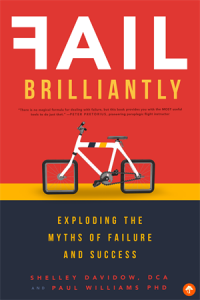PUBLISHED NOVEMBER 2017
Interview by Alexa Schlosser, Managing Editor,
IBPA Independent magazine --
An interview with the CEO of Familius and American West Books, Christopher Robbins

Alexa Schlosser

Christopher Robbins
Christopher Robbins is a self-proclaimed terrible cellist, pianist, and guitar player. But he’s also the founder and CEO of
Familius, an independent book publishing company with a mission to help families be happy; the president and CEO of the wholesale books company
American West Books; and the co-founder of Hummingbird Digital Media. So it’s OK that he lacks proficiency in a few instruments. Familius recently acquired American West Books, so we wanted to catch up with Robbins to discuss what it’s like to be both an independent book publisher and a wholesaler.
[Alexa] What business decisions led you to purchase American West Books?
[Christopher] Acquiring AWB was a strategic decision. While Familius sells books internationally to all markets, having the ability to place Familius titles in the AWB accounts alongside titles AWB sells from the Big Five publishers and other top-tier publishers is a strategic advantage. Having that proximity to the market is tremendously helpful. Further, as AWB adds additional accounts, Familius, simultaneously, is able to leverage those same relationships. Also, as Familius was already part of the AWB office, systems, and warehouse infrastructure, it was prudent to ensure they could stay together and allow for future organizational leverage.
[Alexa] What unique perspective do you think you have because of your independent publishing background?
[Christopher] Growing up in the independent book publishing world gives me an understanding of what publishers need from a wholesale company like AWB. I understand the cost of developing a book and the challenge of finding markets to distribute to. Living on that side of the table helps me when I put on my AWB hat and work with publishing companies on their interests. Also, Familius can create product to sell to AWB’s customers if we can’t find what an AWB customer needs from our current list of publishers. That’s another advantage.
[Alexa] What are AWB’s plans for the future?
[Christopher] We are focused on a customer acquisition growth strategy for AWB, as well as being a data-driven company. We believe that the industry needs a strong AWB to provide diversity to the wholesale market. Also, as our competitive advantage is tailored wholesaling or putting the right books in the right stores at the right time, we are investing in data initiatives to help the company achieve that strategy.
[Alexa] How do you think it will be juggling your role with Familius and AWB simultaneously?
[Christopher] One of my great mentors advised me to add, never subtract. So I’m always focused on how to do more with the precious time I’m given each day. Juggling my roles requires better organization, discipline, and time management. I’m excited to continue to learn more about these skills. But, more importantly, the demands of both businesses require that we hire the right people and provide them clear direction and the right tools and resources and feedback to help us achieve our company goals. What I teach people at both companies is that our value is not in what we do, but what we can multiply. My job is to multiply our efforts through the tremendously talented people who invest their time, energy and skill with Familius and AWB.
[Alexa] I read that you are considering developing a boutique distribution service for complementary publishers to Familius. Is this still something you’re interested in? If so, what would that look like?
[Christopher] I am very interested in developing a competitive distribution service for complementary publishers. We already distribute a couple of smaller but vibrant publishers. It’s clear to me that the industry needs another independent distribution company to provide more options to publishers who want a smaller, hands-on, boutique experience—that still has the scale to reach the global market. I’m confident we can do that. We already have 80-90 percent of the infrastructure in place. However, this initiative is at least one year to two years out, as we must achieve the current goals we’ve set. You can’t chase too many rabbits or you can’t catch any.
[Alexa] What advice do you have for other independent publishers looking to grow and diversify?
 Fail Brilliantly
Fail Brilliantly, Paul Williams and Shelley Davidow
[Christopher] Publishing is a trade, something that you continue to practice and get better at. So, first, expect to learn and make mistakes and learn again and make more mistakes and learn again. We just published a book called
Fail Brilliantly that explores the myth of failure. We don’t fail. We are simply learning. Be excited about trying new things and failing. Learn to fail quickly. Your learning curve will be much more aggressive.
Second, identify what you are really passionate about and publish there. Don’t try to publish for the money. The industry is too competitive. Identify your passionate niche and publish there aggressively. The money will come if you can fill that niche. I say to my colleagues that there is always money to be made if you can solve someone’s problem. An example of a niche is where enough people have a problem that is not being solved to create a sustainable market.
Third, if you have employees—and this is really important—stop believing that you are the smartest person in the room and that you have the answers. I can’t stress enough that you aren’t the smartest person in the room, and you don’t have all the answers. Be humble. Learn to counsel with your team and trust their judgement and ideas. When you surround yourself with capable people who can do their job better than you could do it yourself, magic happens. All great companies understand that their most important asset walks in and out of the doors every day. Leverage that asset and you’ll succeed. Oh, and don't forget that publishers are not immune to the laws of arithmetic. If the margins don’t work on paper, they won't work when the book gets published.
And one more thing: never bet the farm.